Two field hospitals were donated to Lebanon in November. More than two months later, they are unused, highlighting the government’s mismanagement of foreign donations and lack of strategy in tackling the worsening coronavirus pandemic.
Health ministry officials said in public comments that setting up the field hospitals, which were donated by Qatar, is complicated and expensive. But doctors and experts accuse local political players of infighting over partisan benefits that resulted in depriving the Lebanese of health care at a critical time.
Hospitals are swamped with cases of Covid-19 since the easing of restrictions over the Christmas and New Year holiday season.
This week, a nurse at the country's largest hospital told The National that she rations respirators.
The government had originally decided that the two field hospitals should go to the often marginalised cities of Tripoli in the north and Tyre in the south.
But plans changed last Sunday, when Parliament Speaker Nabih Berri, who heads the Shiite Amal movement, announced that the field hospital meant for Tyre would finally be built in Beirut.
This came after several small protests outside the Health Ministry’s buildings and outrage on social media at the government’s inertia.
The plan to set up a field hospital in Tyre failed because the government was unable to find a suitable plot of land, an adviser to the health minister told The National.
A field hospital must be located near an existing hospital, and local private landowners would not rent the space out to the government, he said.
But several doctors in Tyre who The National spoke to doubt that this is the real reason for the move.
Surgeon Ali Ezzedine said that the two most powerful political parties in south Lebanon, Hezbollah and Amal, clashed on where the field hospital should be built.
South Lebanon is majority Shiite, dominated by the Iran-aligned Hezbollah party and Amal. While north Lebanon is overwhelmingly Sunni and loyal to the Future Party led by prime minister-designate Saad Hariri.
Hezbollah runs a powerful regional militia and its military wing is labelled a terrorist organisation by several countries.
"Amal wanted it in Tyre, but Hezbollah pushed for the villages of either Maroub or Jweya," Dr Ezzedine said. "They want to be able to take credit for the hospital services."
Anger rises as Lebanon's hospitals under stress
Anger at the state and political parties is running high in Lebanon. Most people blame government corruption, which has its roots in the country’s sectarian power-sharing system.
The economy crashed a year and a half ago and has worsened with the coronavirus pandemic. More than half the Lebanese population lives in poverty, according to reports by international agencies.
Three weeks ago, when Dr Ezzedine first heard of the rumours about the Hezbollah-Amal disagreement, he decided to approach 15 other doctors to pressure authorities to act by offering their services free of charge.
On January 11, he wrote on Facebook that “if the cost of running the field hospital donated by Qatar ... is an obstacle to its installation, I, Dr Ali Ezzedine, announce that I am ready to manage it without salary for three years with a number of colleagues”.
The message was shared close to 100 times but was ignored by the health ministry.
A close adviser to Mr Berri defended the decision to move the field hospital from Tyre to Beirut.
"Most patients in serious or critical conditions are sent to Beirut," Ali Hamdan, Mr Berri's media adviser, told The National.
When asked whether the transfer had been caused by disagreements with Hezbollah, Mr Hamdan did not comment. Hezbollah’s press office also did not respond to a request for comment.
Salim Adib, a professor of epidemiology and public health at the American University of Beirut, described the move of the hospital to Beirut as a “face-saving solution for the two Shiite parties”.
"They're bringing the whole thing back to Beirut now and depriving the south of it. It's amazing how things work in this country," he told The National.
A second doctor in Tyre, who asked to remain anonymous, criticised political parties for failing to come up with an effective strategy to fight the spread of the coronavirus.
He also pointed out that even if the field hospital was set up it would still lack the equipment necessary to treat Covid-19 patients.
Tyre’s mayor Hassan Dbouk echoed his views.
“There is no ICU, no X-ray, no laboratory, no PCR machine. Nothing,” in the field hospital, according to Mr Dbouk. It is comprised of three large PVC tents, 500 military steel beds and 25 portable respirators.
Unless the health ministry provided the extra equipment, he argued, including toilets, it was useless for treating Covid-19 patients.
This would not be the first time that medical equipment donated by a foreign country is wasted because of political infighting.
After the 33-day war between Hezbollah and Israel in 2006, Turkey funded the construction of a medical centre in the southern city of Sidon that was built and equipped but was never operated by the health ministry owing to disagreements among three major political parties over who to appoint on the hospital’s administrative board.
“Medical equipment worth millions of dollars was sold off as scrap metal,” said an adviser to one of the parties involved.
But Tripoli’s mayor, Riad Yamak, seemed convinced that a field hospital would benefit his city, one of the poorest in Lebanon.
The municipality has unlocked 300 million Lebanese pounds ($35,300 at the country’s widely used parallel exchange rate), to install the 300-bed field hospital near the city’s government hospital in the coming weeks.
The Health Ministry did not contact him until early January, hence the delay, he said.
“In Tyre, there were some disagreements. Here, everyone agrees that we need to move forward as fast as possible. Private and public hospitals are running out of space. The situation is urgent,” he said.
In the meantime, no government body seems to want to take responsibility for the field hospitals that are sitting in a warehouse under a large stadium south of Beirut.
When The National asked to visit the warehouse, an army spokesperson said that it was not opposed to it but that journalists would need a permit from the Health Ministry.
“The warehouse is the army’s [property]. We can’t give permission for something that is not ours,” the health minister’s adviser said.
In the end, neither side issued a permit.
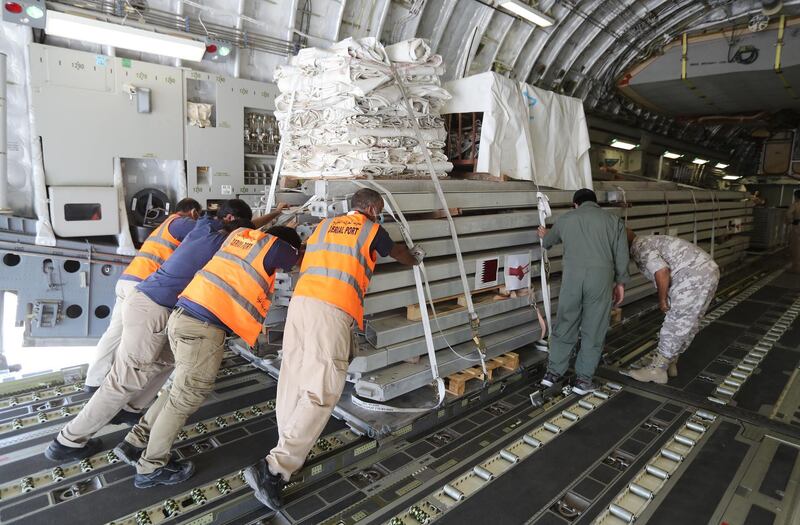

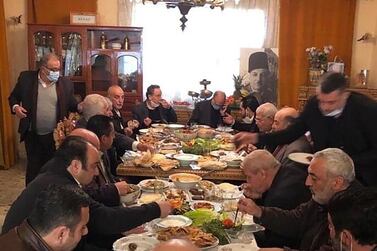
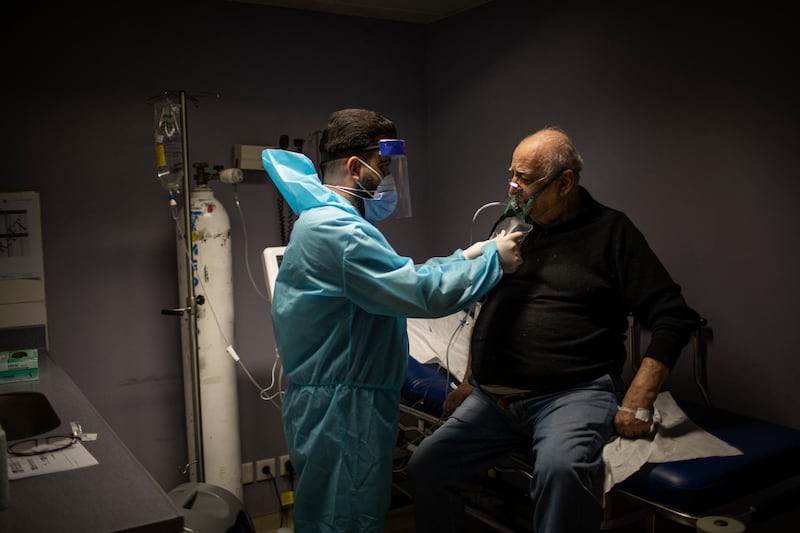
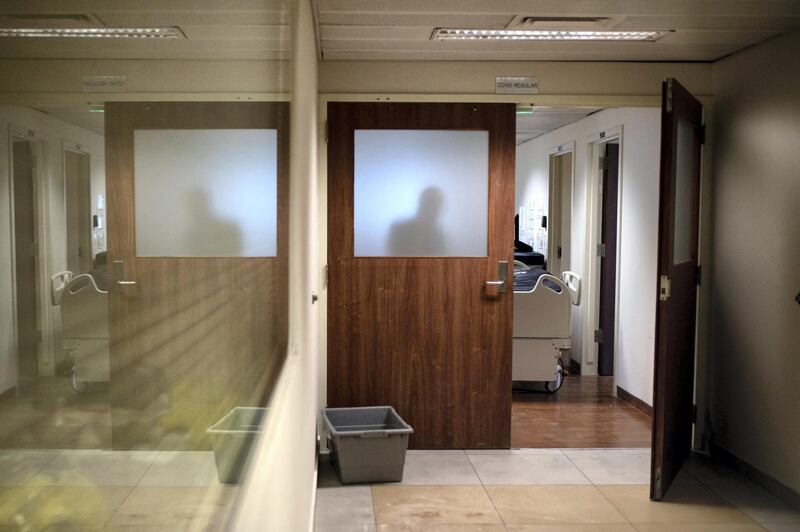
![[NOTE TO EDITORS: The face of the patient has been blurred to protect identity] ©2021 Tom Nicholson. 18/01/2021. Beirut, Lebanon. A patient in the Emergency Room (ER) at the American University of Beirut (AUB) Hospital. Deaths from Coronavirus in Lebanon reached a peak high of 53 today. Photo credit : Tom Nicholson](https://thenational-the-national-prod.cdn.arcpublishing.com/resizer/v2/U6AGJ3QXYQBO23IJF3MVIREEJI.jpg?smart=true&auth=93c0749e87f99ff2ca5e9cb2a2740f863a4c7e8358bcade9988707d9a51335f1&width=800&height=532)
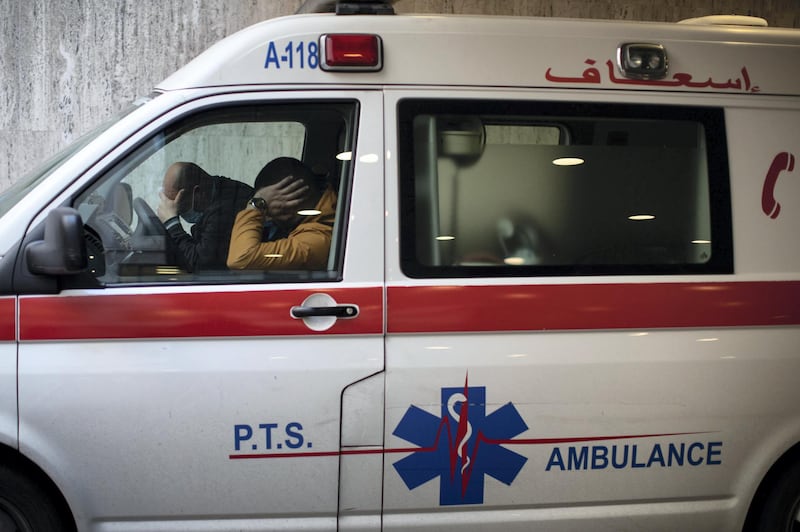
![[NOTE TO EDITORS: The face of the patient has been blurred to protect identity] ©2021 Tom Nicholson. 18/01/2021. Beirut, Lebanon. A patient is moved in the Coronavirus Emergency Room (ER) at the American University of Beirut (AUB) Hospital. Deaths from Coronavirus in Lebanon reached a peak high of 53 today. Photo credit : Tom Nicholson](https://thenational-the-national-prod.cdn.arcpublishing.com/resizer/v2/NRFK37IVROQPGOGMLFBFWMCLDU.jpg?smart=true&auth=bc6668e972ad5b67e2d93cf9c867e120af0386c521cf286bb012e55a63f11dbc&width=800&height=532)
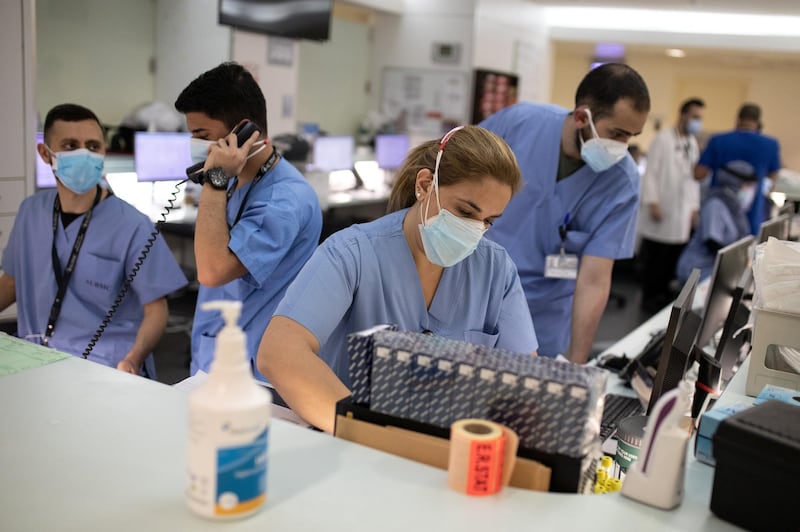
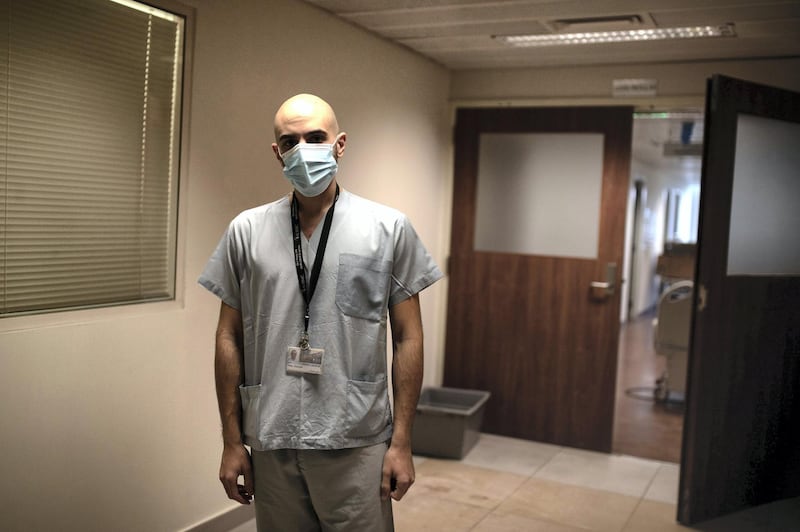
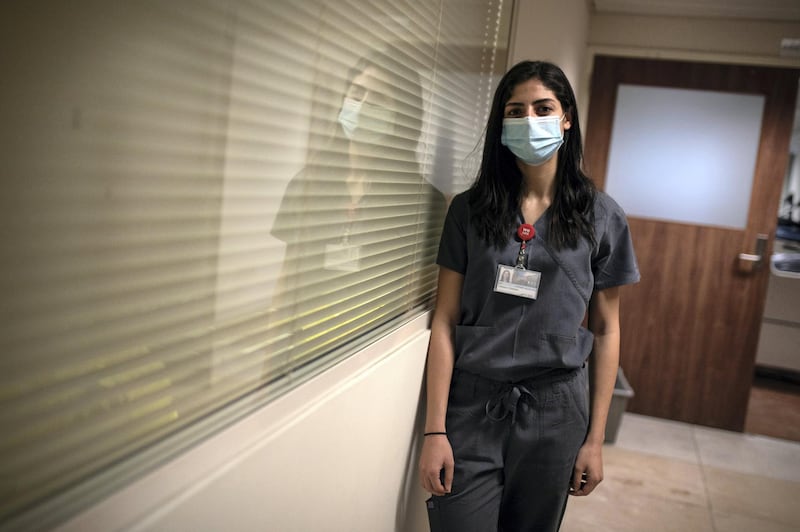
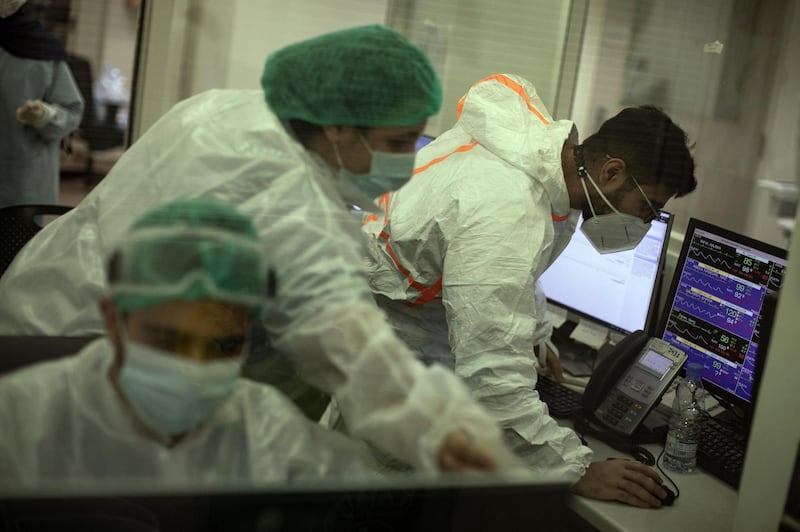
![[NOTE TO EDITORS: The face of the patient has been blurred to protect identity] ©2021 Tom Nicholson. 18/01/2021. Beirut, Lebanon. A patient is moved in the Emergency Room (ER) at the American University of Beirut (AUB) Hospital. Deaths from Coronavirus in Lebanon reached a peak high of 53 today. Photo credit : Tom Nicholson](https://thenational-the-national-prod.cdn.arcpublishing.com/resizer/v2/GX52ZEYKYNGU7AQ46SYSZWLIUI.jpg?smart=true&auth=f4abebd2d87c01e3af9bab044b7478b66f638d54e047403abf24dc2d3c44d319&width=800&height=532)




